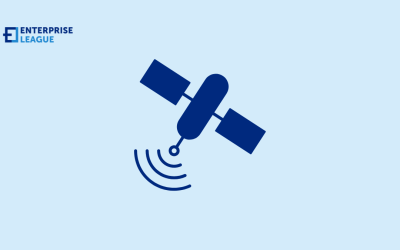Because of debt-related poverty, the IRS determined that special tax measures were required. The IRS determined that imposing a personal income tax burden on such individuals would deprive them and their families of basic needs. Because poverty is a relative notion that considers real income and the number of people who rely on it, the IRS now offers specific tax provisions to help qualified individuals reduce their economic burden.
Tax forgiveness reduces tax liability and forgives some taxpayers’ responsibilities even if they have not paid their debts.
What is an offer in compromise, and when does it occur?
The IRS will consider the exact statistics of your debt problems and may enable you to make an Offer in Compromise. An OIC is the closest thing the IRS has to tax forgiveness (outside of certain exceptional circumstances), allowing you to negotiate the amount you may pay with the IRS.
According to the IRS, the OIC is an agreement between a taxpayer and the IRS that resolves a taxpayer’s tax liability for less than the amount owed. In most circumstances, taxpayers who can ultimately pay their bills through an installment plan or other methods will not be eligible for an OIC. To qualify for an OIC, the citizen must have filed all tax returns, received a bill for tax liability included in the offer, made all required estimated taxes for the current year, and, if the taxpayer is a company owner with employees, made all required federal tax deposits for the current year.
Who is eligible to participate in this program?
The IRS will firstly look at your ability to repay your debt, looking at factors like income, expenses, total assets, and liabilities. The IRS is not legally allowed to cause extensive financial hardship, and it’s in the taxpayer’s and the IRS’s best interest to come up with a good solution. You may confirm your eligibility and write a tentative proposal.
In addition, if you match the following requirements, you may be eligible for a compromise offer:
– You have filed all necessary tax returns and paid all needed forecasted payments
– You don’t have a current bankruptcy case
– You have a valid extension for a current-year return (if applying for the current year)
– You’re an employer that has made tax deposits for the current and previous two quarters before applying
Understand the processes of the IRS
While the IRS evaluates your offer, your non-refundable payments and fees are applied to your tax liability. Moreover, the IRS may file a Notice of Federal Tax Lien or suspend other collection activities.
When your offering is evaluated, your legal assessment and collection period are extended, and you no longer have to make payments on an existing installment agreement. Finally, your offer is automatically accepted if the IRS doesn’t decide within two years of the IRS receipt date.
IRS debt forgiveness
If there were established rules that IRS agents could follow regarding handling tax debt, explaining would be easier. The IRS, on the other hand, interacts with taxpayers one-on-one, so one person’s tax debt burden could be entirely forgiven, while non-governmental parties could ask another to pay off their debt fully. This is because the IRS only forgives tax debt in exceptional circumstances.
Keeping this in mind, the IRS seldom forgives a complete tax debt burden. They might do so if you are going through a financially difficult time, but there are special qualifications. Therefore, the best thing to do for your financial situation is to contact a tax professional to help you with your debt issues.
Getting tax help from professionals
If you’re dealing with a high tax burden or have been dealing with tax debt for years, it’s natural to feel irritated and helpless. There is always hope, which is always excellent news. The IRS will try to work with you if you continue demonstrating a good faith attempt to comply.
Furthermore, having a knowledgeable tax professional represent your interests might help broaden opportunities you didn’t realize existed. One of these alternatives might be the IRS debt forgiveness program. Even if you do not qualify for total forgiveness, other choices will meet your financial circumstances.
More must-read stories from Enterprise League:
- The golden rules you need to build a steady buyer-seller relationship.
- Can you use TikTok marketing for your small business successfully? Find out here.
- Mindblowing guerrilla marketing ideas.
- A list of mistakes entrepreneurs make and how to overcome them.
- Find out how having age diversity in the workplace can improve your business.
Related Articles
5 essential time management skills for busy professionals seeking healthier eating habits
Wrong time managing can often be a burden to start taking care of your health, that’s why we will share few time management skills for busy professionals.
How Webflow development can transform your business
Webflow is a powerful platform that empowers businesses of all sizes to create stunning, custom websites without coding that drive growth and achieve success.
How GPS transforms field service management process
In this article, we will explore the top advantages of implementing GPS tracking in field service management software and the benefits it brings to the table
5 essential time management skills for busy professionals seeking healthier eating habits
Wrong time managing can often be a burden to start taking care of your health, that’s why we will share few time management skills for busy professionals.
How Webflow development can transform your business
Webflow is a powerful platform that empowers businesses of all sizes to create stunning, custom websites without coding that drive growth and achieve success.






